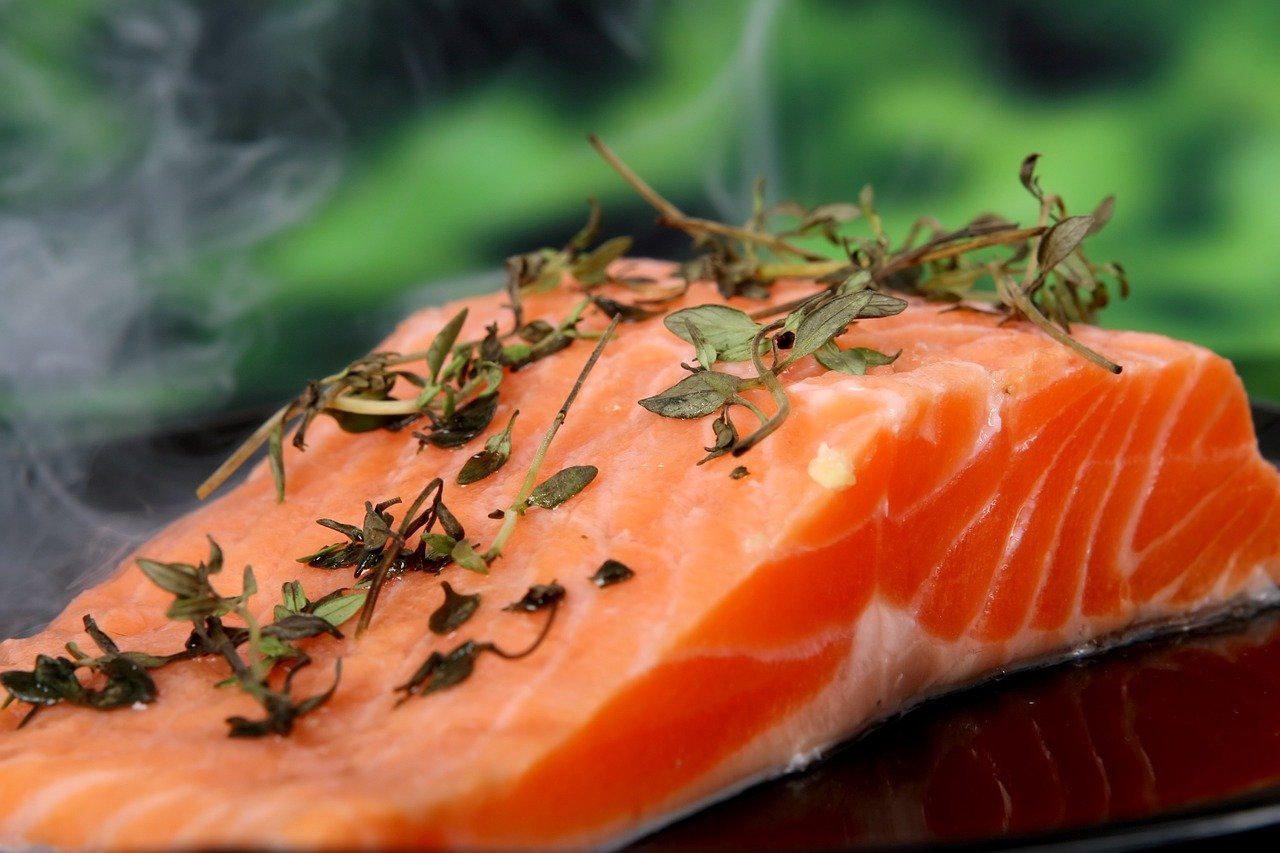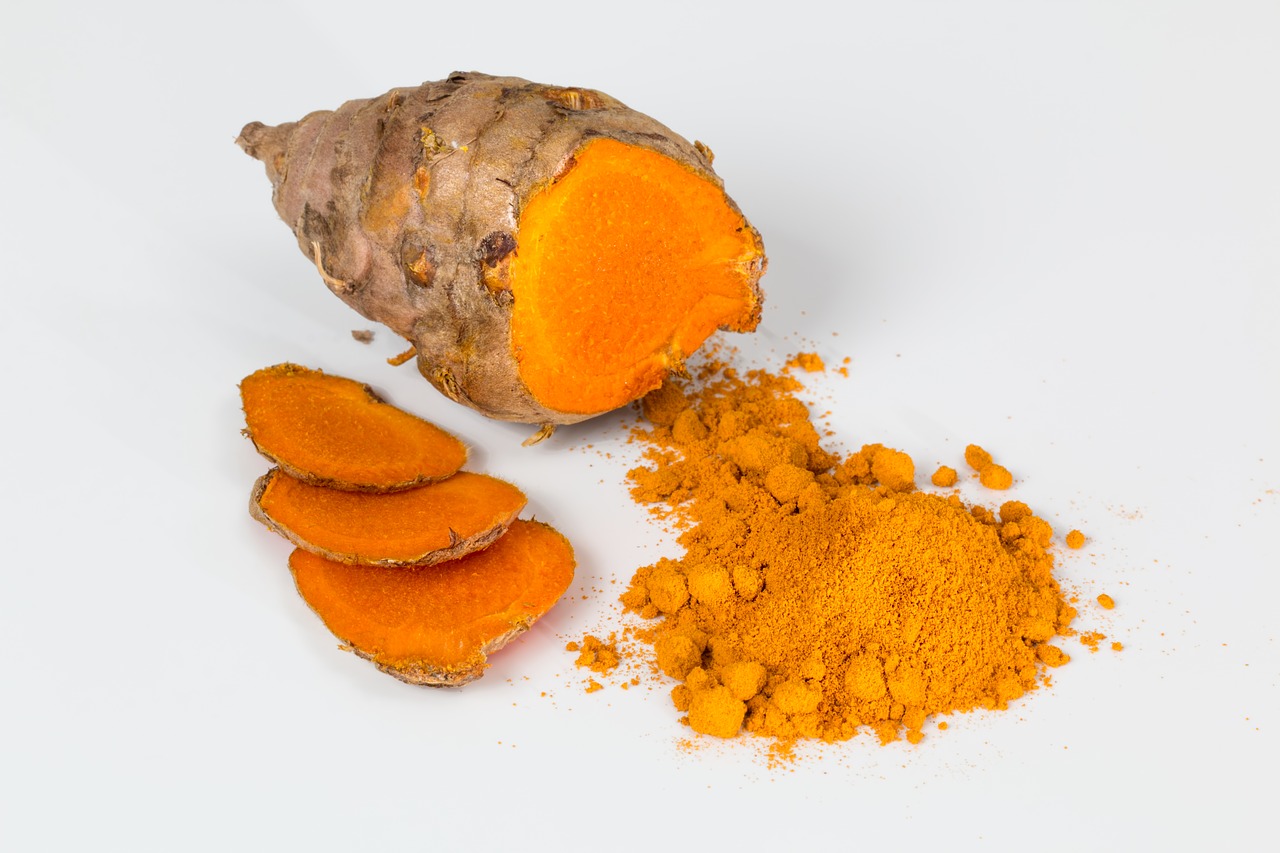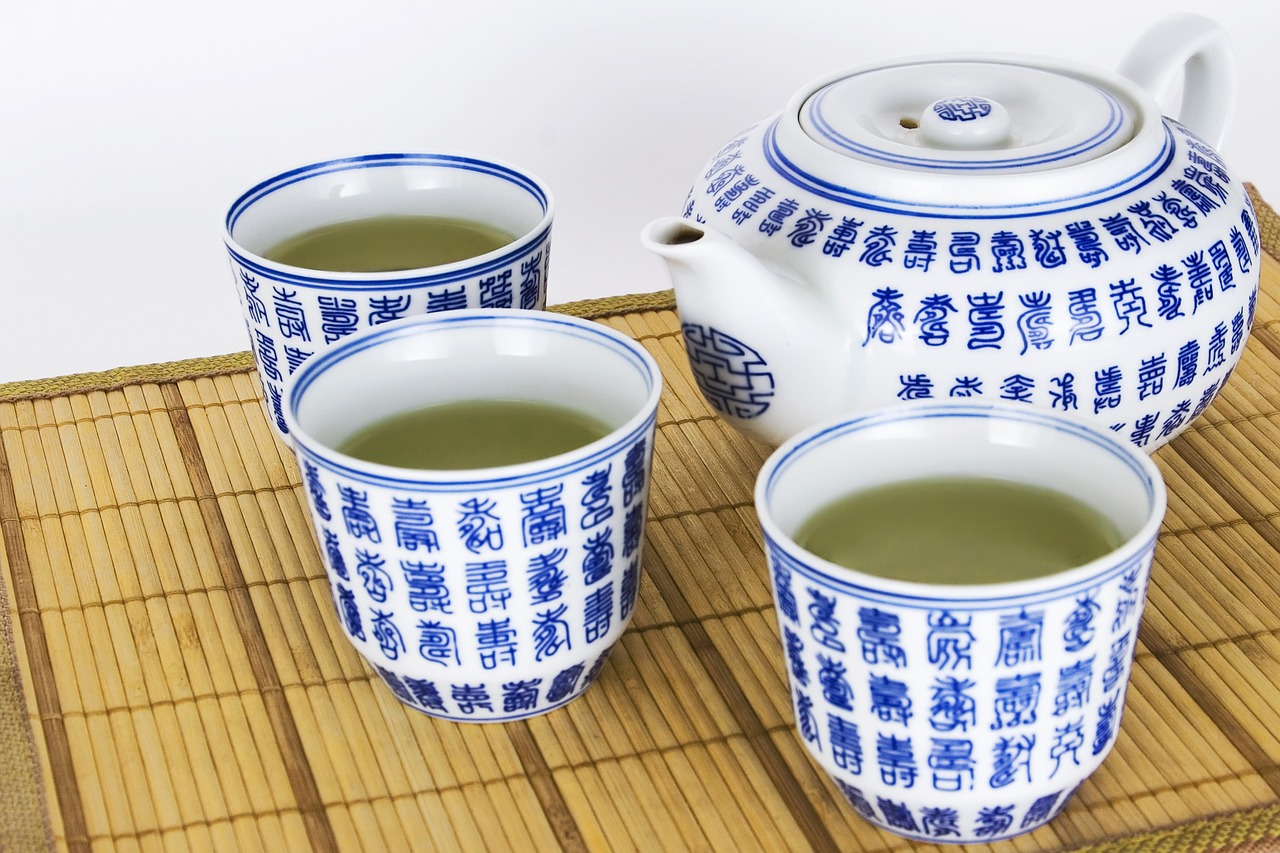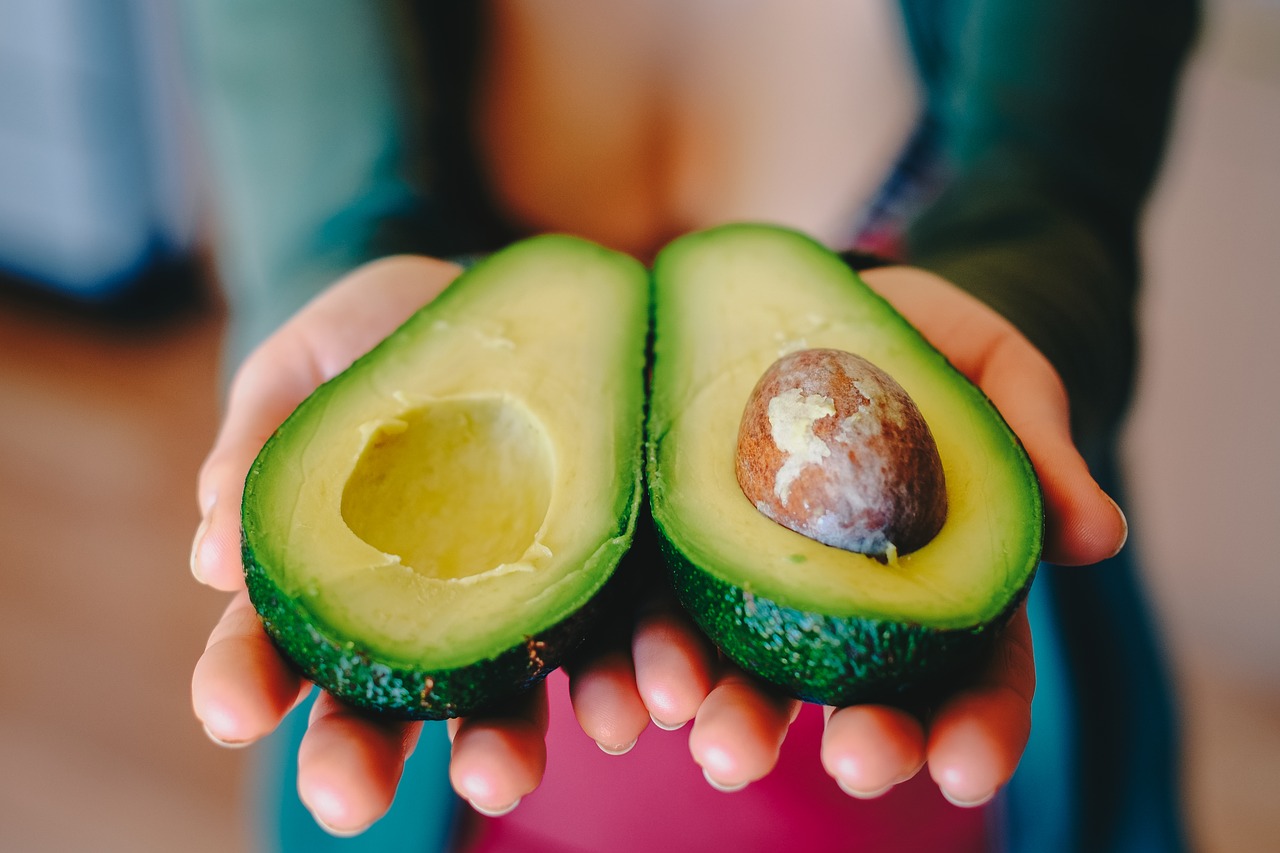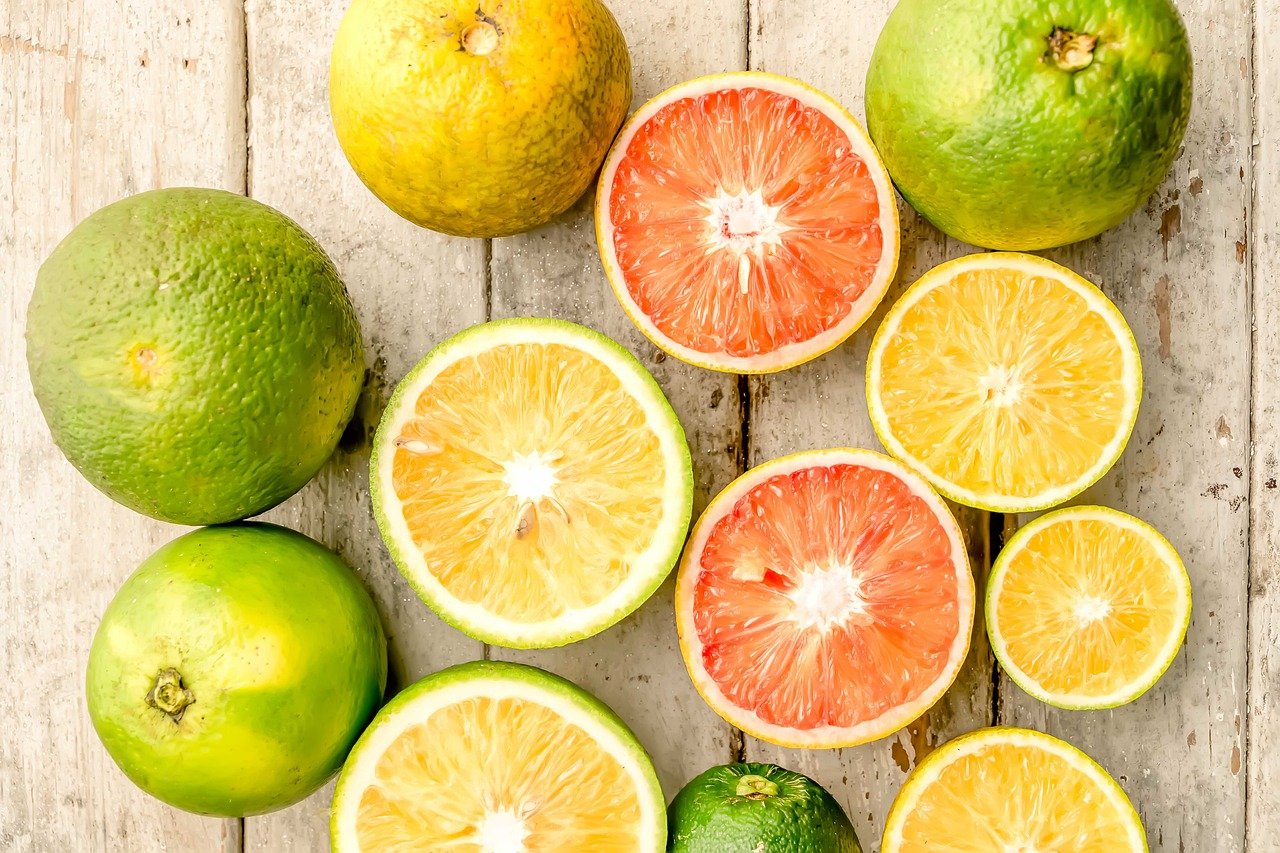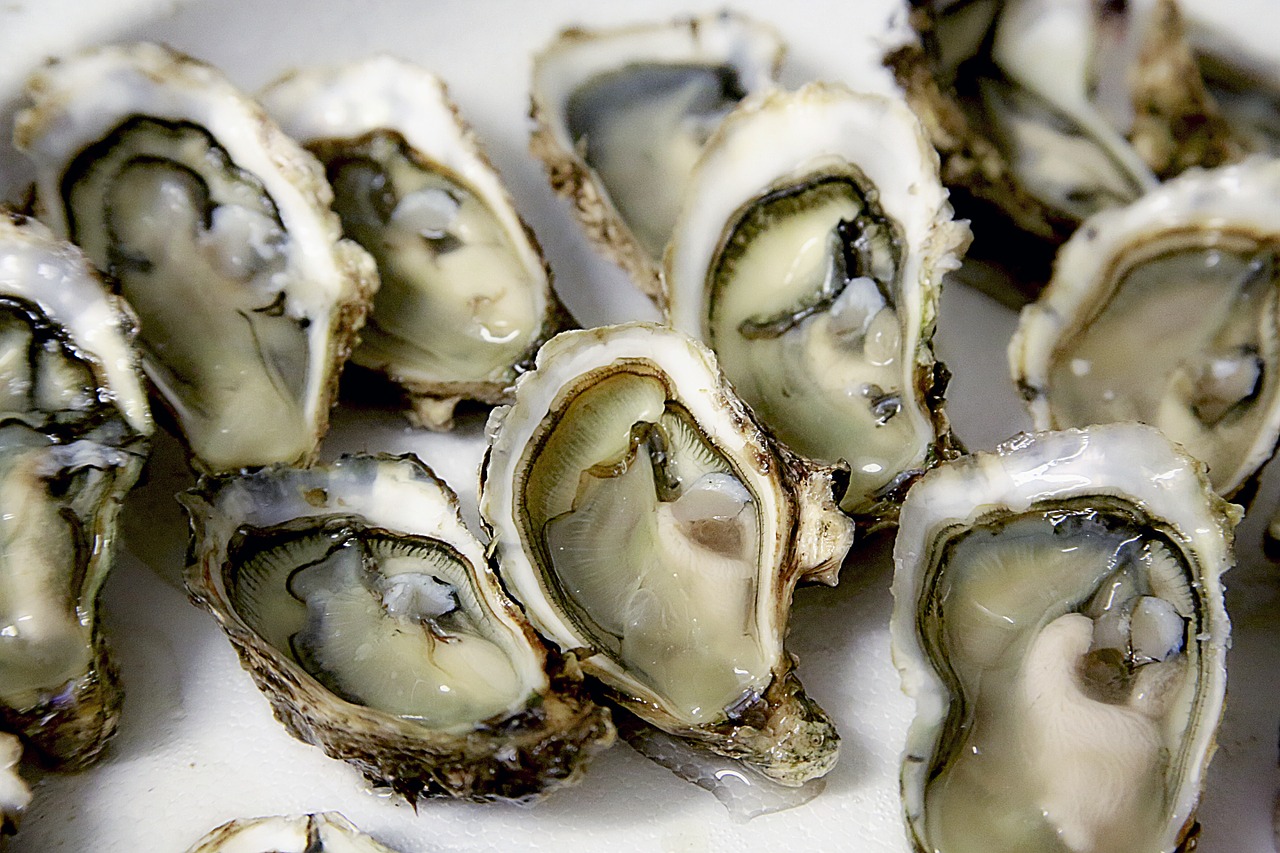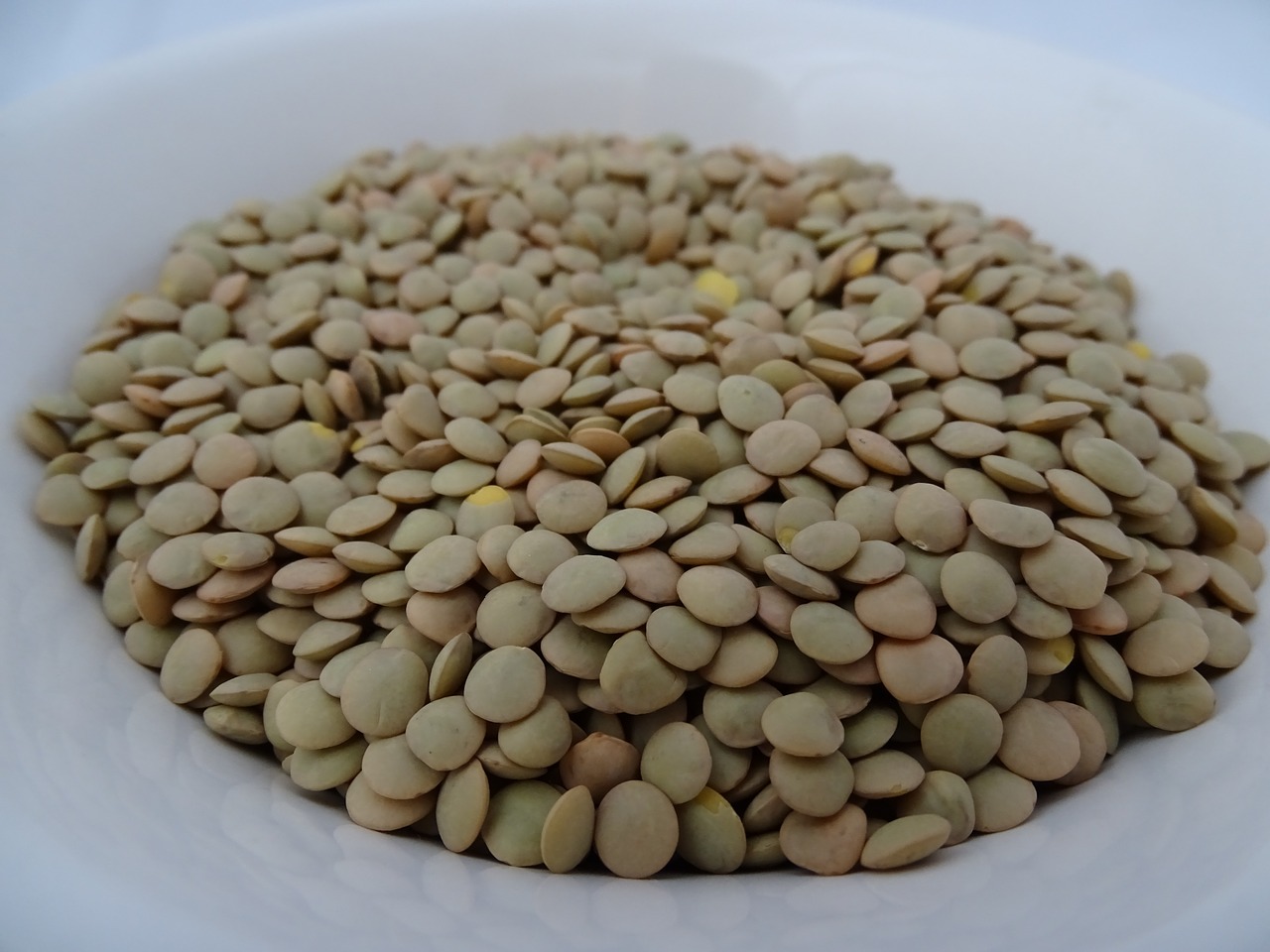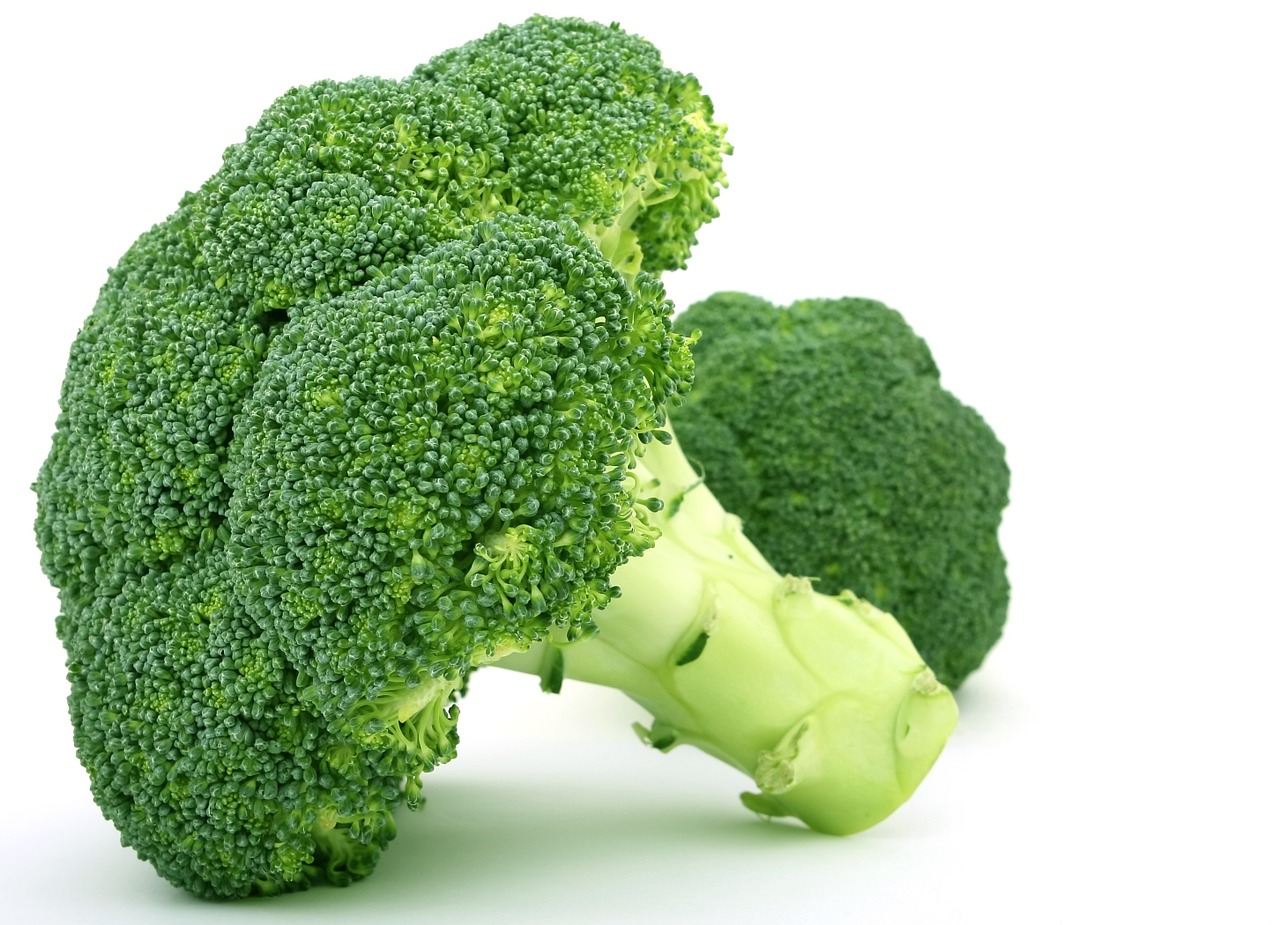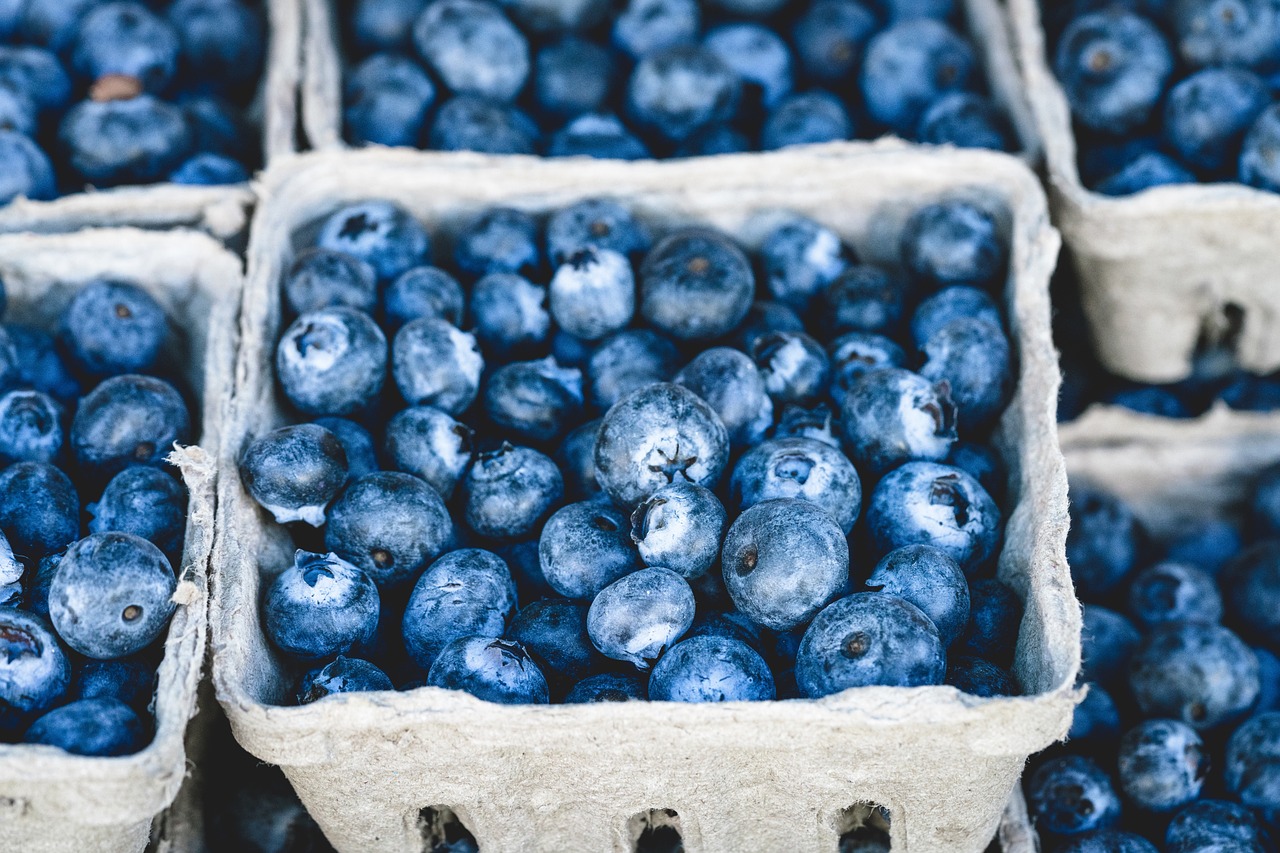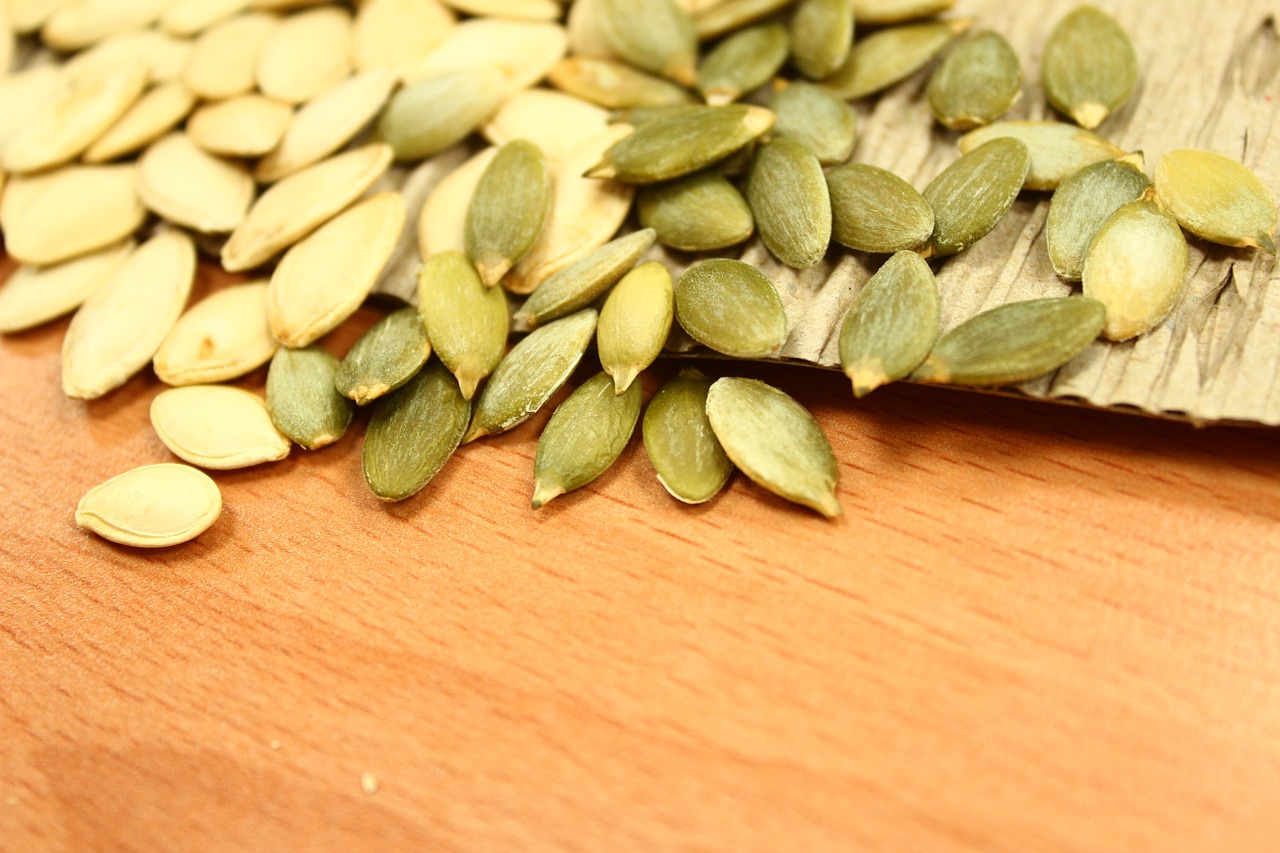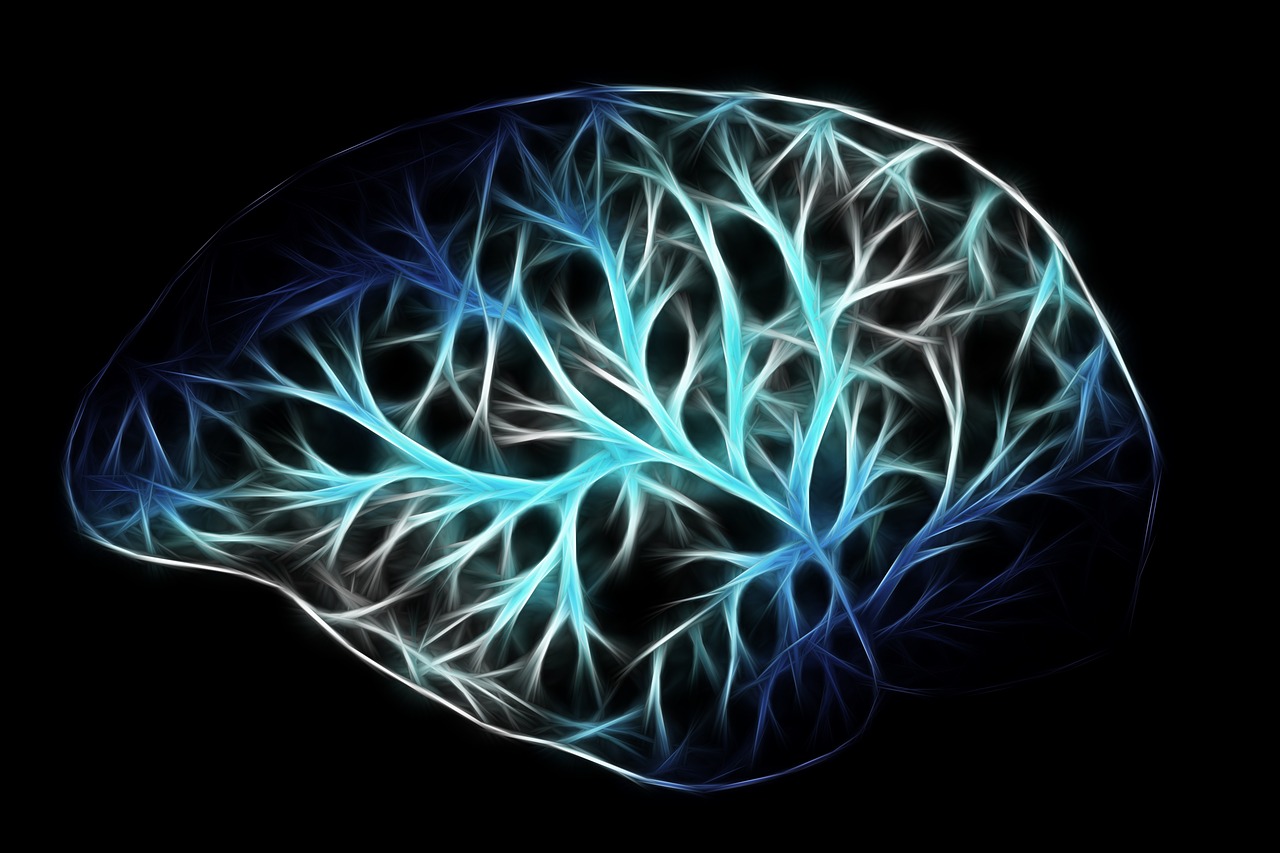
Your nutritional choices have a significant impact on your health and body. Each element of the body, as well as the various biological and physiological processes that occur naturally, require a unique set of vitamins and minerals to stay healthy and function properly.
According to numerous studies, your brain health is an area of the body that necessitates a regular supply of particular nutrients in order to sustain healthy cognition. Consuming a diet rich in brain-boosting foods can considerably improve your brain’s health and lower your risk of getting neurological disorders later in life.
In this post, we will take a look at the best foods and vitamins and minerals for brain health.
1) Fatty and oily fish
Fatty fish (such as Salmon) is a fantastic choice for brain health as they are high in omega-3 fatty acids, a fundamental building block of the brain. Omega-3 fatty acids help to improve memory and mood while also preserving the brain from cognitive decline.
For instance, one study reported that people who are more susceptible to brain degradation due to regular exposure to psychiatric medication, and alcohol or drugs, can benefit from consuming oily fish. The study reported significant improvement to the patient’s cognitive thinking and memory [1].
Other food sources that contain omega-3 fatty acids include flax seeds, krill, chia seeds, kiwi fruit, and walnuts.
2) Turmeric (curry spice)
Turmeric is a dark-yellow spice found in curry powder. It’s not only a powerful antioxidant and anti-inflammatory, but it also has the ability to cross the blood-brain barrier and reach the brain directly. Turmeric has been linked to better memory, decreased depression, and the formation of new brain cells.
The benefits of turmeric lie in its contents of curcumin which has been shown by a number of studies to support brain health and prevent memory loss.
For instance, one study found that curcumin reduced inflammation and improved memory as well as significantly reduced the risk of Alzheimer’s disease [2].
3) Green tea
Another incredible food that boosts brain health is green tea. Green tea contains an amino acid called L-theanine which can cross the blood-brain barrier and increase neurotransmitter activity. In addition, it is a rich source of flavonoids which are anti-oxidant compounds that can improve cognitive function.
For instance, one study has reported that people who regularly consume green tea experience improved learning skills and memory [3].
Other food sources that contain flavonoids include Ginkgo tree, citrus fruits, and dark chocolate.
4) Eggs
Eggs are high in vitamins B6 and B12, folate, and choline, all of which are important for brain function. Choline is a necessary component for the production of acetylcholine, a neurotransmitter that aids in mood and memory regulation [4].
B vitamins, on the other hand, can help reduce the onset of mental decline in people by reducing homocysteine levels, an amino acid associated to dementia and Alzheimer’s disease [5].
5) Avocadoes
Avocadoes can support your brain health because they are a great source of monounsaturated fatty acids. Consuming an adequate intake of monounsaturated fatty acids can increase in the production and release of the neurotransmitter acetylcholine. Acetylcholine is required for learning and memory; decrease of acetylcholine production in the brain causes Alzheimer’s disease-related memory impairments.
In addition, avocadoes are also a great source of vitamin E which has shown to delay and reduce the risk of cognitive decline [6].
Other sources of vitamin E include asparagus, peanuts, olives, and spinach.
6) Citrus fruits
Citrus fruits like oranges and grapefruits can improve brain health as they are a great source of vitamins C, E and carotene, all of which are powerful antioxidants.
All of these nutrients aid in the fight against free radicals, which can cause brain cell damage. Furthermore, they promote brain health as you become older and may protect you from illnesses including major depressive disorder, anxiety, schizophrenia, and Alzheimer’s disease [7].
7) Oysters
Oysters are great for your brain health because they are a great source of copper. Copper is a mineral that is supports the health of your brain though a variety of ways. For instance, copper is needed for enzymes that assist in providing energy to the brain as well as conveying signals between the body and the brain.
There are studies that also show Alzheimer’s disease may be prevented with adequate intake of copper since deficiency in this mineral has been associated with learning difficulties and memory [8].
Other foods that are rich in copper include Brazil nuts, cocoa and black pepper.
8) Lentils
Lentils support brain health and reduce the risk of degeneration as they are high in iron. Iron plays an important role in brain health as it acts as a cofactor in the creation of neurotransmitters and myelin. These protect the brain and cells from oxidative stress which can cause to inflammation.
Plenty studies show that people who are iron-deficient experience memory loss and brain fog [9].
Other sources that contain iron include red meats, fish, poultry, and beans.
9) Broccoli
Broccoli is very rich in powerful antioxidants like vitamin C as well as vitamin K, both of which can support your brain health.
In addition, broccoli also includes chemicals known as glucosinolates, which the body breaks down into isothiocyanates. Isothiocyanates have been shown to reduce the likelihood of developing neurodegenerative disorders.
There are plenty of studies that show both antioxidants to improve memory and cognitive thinking. For instance, a 2019 study reported that Vitamin K is involved in the metabolism of sphingolipids, a type of fat that helps brain cells proliferate, differentiate, and survive [10].
In regards to vitamin C, a 2017 study found that there is a strong link between adequate intake of vitamin C and cognition [11].
10) Blueberries
Blueberries can support your brain health because they contain powerful antioxidants as well as anti-inflammatory compounds.
Antioxidants fight oxidative stress and inflammation, two variables linked to brain ageing and neurodegenerative disorders. These antioxidants are great for improving the communication and neurotransmission between the brain, cells and the body [12].
11) Pumpkin seeds
Pumpkin seeds contain a number of nutrients that may support your brain health. For instance, they are a rich source of powerful antioxidants that protect the brain cells from oxidative stress. In addition, they also contain nutrients like zinc, iron, magnesium and copper, all of which support brain health.
For instance, zinc is a powerful mineral that supports the signalling between brain cells and the body. If you are deficient in zin, you may be at a higher risk of developing conditions like Alzheimer’s disease, depression, and Parkinson’s disease [13].
Magnesium, on the other hand, has been linked to good memory and better learning. Those suffer from magnesium deficiency may be at a higher risk of developing depression and migraines [14].
References:
1) Freeman, M., Hibbeln, J., Wisner, K., Davis, J., Mischoulon, D., Peet, M., . . . Stoll, A. (2016, December). Omega-3 fatty acids: evidence basis for treatment and future research in psychiatry. Retrieved from Pubmed.gov: https://pubmed.ncbi.nlm.nih.gov/17194275/
2) Frautschy, S., Hu, W., Kim, P., miller, S., Chu, T., Harrish-white, M., & G, C. (2001, December). Phenolic anti-inflammatory antioxidant reversal of Abeta-induced cognitive deficits and neuropathology. Retrieved from Pubmed.gov: https://pubmed.ncbi.nlm.nih.gov/11755008/
3) Van Praag, H., Lucero, M., Yeo, G., Stecker, K., Heivand, N., Zhao, C., . . . Gage, F. (2007, May 30). Plant-derived flavanol (-)epicatechin enhances angiogenesis and retention of spatial memory in mice. Retrieved from Pubmed.gov: https://pubmed.ncbi.nlm.nih.gov/17537957/
4) Nurk, E., Refsum, H., Bjelland, I., Drevon, C., Tell, G., Ueland, P., . . . Smith, D. (2013, February 14). Plasma free choline, betaine and cognitive performance: the Hordaland Health Study. Retrieved from Pubmed.gov: https://pubmed.ncbi.nlm.nih.gov/22717142/
5) Smith, D., & Refsum, H. (2016, July 17). Homocysteine, B Vitamins, and Cognitive Impairment. Retrieved from Pubmed.gov: https://pubmed.ncbi.nlm.nih.gov/27431367/
6) Perkins, A., Hendrie, H., Callahan, C., Gao, S., Unverzagt, F., Xu, Y., . . . Hui, S. (1999, July 1). Association of antioxidants with memory in a multiethnic elderly sample using the Third National Health and Nutrition Examination Survey. Retrieved from Pubmed.gov: https://pubmed.ncbi.nlm.nih.gov/10400551
7) Han, Q.-Q., Shen, T.-T., Wang, F., Wu, P.-F., & Chen, J.-G. (2018, February). Preventive and Therapeutic Potential of Vitamin C in Mental Disorders. Retrieved from Pubmed.gov: https://pubmed.ncbi.nlm.nih.gov/30074145/
8) Pajonk, F.-G., Kessler, H., Supprian, T., Hamzei, P., Bach, D., Schweickhardt, J., . . . Bayer, T. (2005, September 8). Cognitive decline correlates with low plasma concentrations of copper in patients with mild to moderate Alzheimer's disease. Retrieved from Pubmed.gov: https://pubmed.ncbi.nlm.nih.gov/16155346/
9) Ferreira, A., Neves, P., & Gozzelino, R. (2019, August 29). Multilevel Impacts of Iron in the Brain: The Cross Talk between Neurophysiological Mechanisms, Cognition, and Social Behavior. Retrieved from Pubmed.gov: https://www.ncbi.nlm.nih.gov/pmc/articles/PMC6789770/
10) Alisi, L., Cao, R., De Angelis, C., Cafolla, A., Caramia, F., Cartocci, G., . . . Fiorelli, M. (2019, march 19). The Relationships Between Vitamin K and Cognition: A Review of Current Evidence. Retrieved from Pubmed.gov: https://www.ncbi.nlm.nih.gov/pmc/articles/PMC6436180/
11) Travica, N., Ried, K., Sali, A., Scholey, A., Hudson, I., & Pipingas, A. (2017, August 30). Vitamin C Status and Cognitive Function: A Systematic Review. Retrieved from Pubmed.gov: https://www.ncbi.nlm.nih.gov/pmc/articles/PMC5622720/
12) Agric, J. (2012, January 23). Berry Fruit Enhances Beneficial Signaling in the Brain. Retrieved from ACS Publications: https://pubs.acs.org/doi/abs/10.1021/jf2036033
13) Petrilli, M., Kranz, T., Kleinhaus, K., Joe, P., Getz, M., Johnson, P., . . . Malaspina, D. (2017). The Emerging Role for Zinc in Depression and Psychosis. Retrieved from ubmed.gov: https://www.ncbi.nlm.nih.gov/pmc/articles/PMC5492454/
14) Tarleton, E., Littenber, B., MacLean, C., Kennedy, A., & Daley, C. (2017, June 27). Role of magnesium supplementation in the treatment of depression: A randomized clinical trial. Retrieved from Pubmed.gov: https://www.ncbi.nlm.nih.gov/pmc/articles/PMC5487054/

